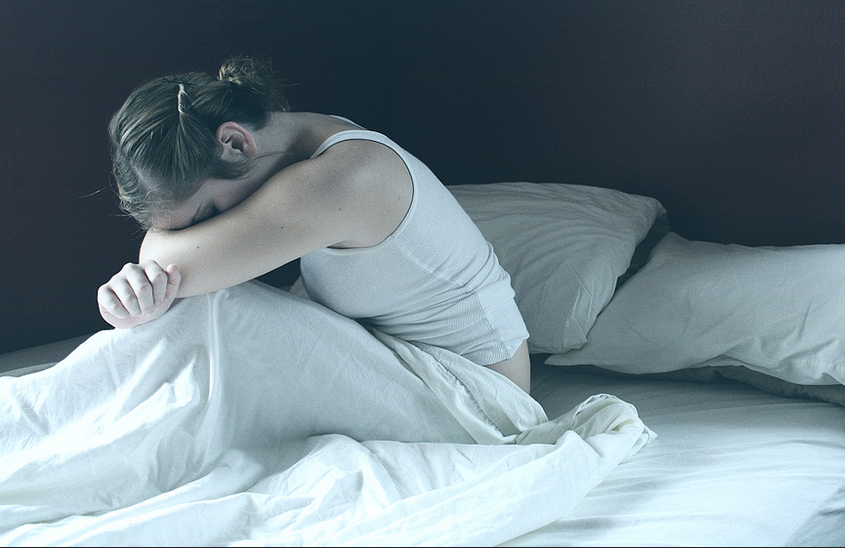Learn the signs if you are sleep deprived. Check out the article we found over at Health.com.
by Rachel Swalin
You know you’re supposed to get seven to nine hours of sleep a night, but sometimes, you stay up for a night out on the town, to finish a project at work, or even just to watch Law & Order reruns. We get it—we’ve all been there, and a late night here and there won’t have any lasting effects beyond the fatigue you feel the next day. It’s when you skimp on sleep night after night that it becomes a real problem. Though you may think your five-hours-a-night habit is nothing to worry about, chronic sleep deprivation has been tied to an increased risk of type 2 diabetes, cardiovascular disease, obesity, and depression. Read on for subtle signs your body needs more time in bed.
You’re always hungry
“If the brain is not getting the energy it needs from sleep it will often try to get it from food,” says Chris Winter, MD, owner of Charlottesville Neurology and Sleep Medicine in Virginia. Running low on rest can increase the production of ghrelin, also known as the hunger hormone, in your gut. Too much ghrelin makes your body crave fatty and sugary foods, Dr. Winter says. Poor sleep can also mess with leptin, the satiety hormone. “When you’re not sleeping properly you tend to eat more of what you’re craving because you’re not feeling the signals to stop eating,” Dr. Winter says.
You’ve gained weight
With an increased appetite comes another unpleasant symptom of sleep deprivation: weight gain. “When you’re tired, you don’t watch what you’re eating,” Dr. Winter says. “You just look for all kinds of things to help you feel more awake.” With ghrelin and leptin already out of whack, your body will crave fried foods and sweets to get you through the day—a surefire way to widen your waistline. A lack of sleep can also have direct effects on your metabolism, Dr. Winter says; it tends to slow down without proper rest. What’s more, a 2012 study in the Annals of Internal Medicine found that just four and a half hours of sleep for four days straight can reduce your fat cells’ ability to respond to insulin, the hormone responsible for regulating energy, by 30%.
Your memory’s shot
Can’t remember what movie you saw last weekend or where you put your car keys—again? Before you panic about having a serious memory problem, know that your brain is probably fine. “When you’re tired, you’re usually not paying a whole lot of attention to what’s going on when trying to make a memory,” Dr. Winter says. Still, getting decent sleep is crucial for brain health in the long term. Research from the National Institutes of Health showed that in mice, sleep helps clear toxic molecules from the brain. So not getting enough regularly could impair your brain’s ability to keep the nervous system clear, Dr. Winter says.
You get sick often
Another thing that can suffer with poor sleep is your immune system. “If you’re not sleeping properly there can be significant issues in terms of your body’s ability to fight off infections,” Dr. Winter says. In particular, you might find that it’s harder to shake off a cold. A 2009 study in the Archives of Internal Medicine followed the sleeping habits of 153 volunteers for 14 days straight. Researchers found that people who got less than seven hours of sleep were nearly three times as likely to develop a coldthan those who got eight hours or more rest a night. That could be because your immune system produces cytokines while you sleep, which are proteins that help protect against infections and inflammation, meaning a few nights of poor sleep could lower your body’s defenses against pesky viruses.
You’re having trouble making decisions
If you’ve been finding it harder than usual to manage projects at work and home, lack of sleep could be the culprit. “Sleep deprivation can affect speed and higher-level cognitive processing,” Baron says. That means essential functions, like problem solving or time management, become even more difficult to carry out. Take this 2009 study in Sleep: researchers asked both sleep-deprived and well-rested volunteers to perform a set of tasks that required quick decision-making two times. Between testing, the accuracy of those without quality sleep went down by 2.4%, while the rested group improved accuracy by 4.3%. All in all, poor sleep simply hinders your ability to react quickly.
Next Article: Lack Of Sleep Is Directly Related To These Diseases
Read full article: 11 Signs You’re Sleep Deprived







Recent Comments